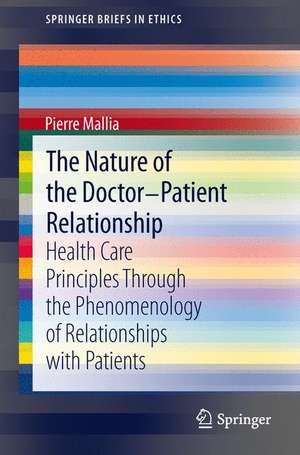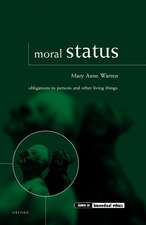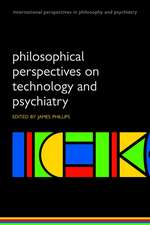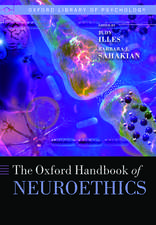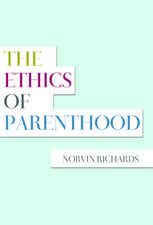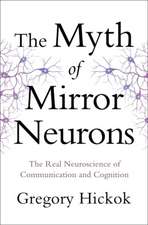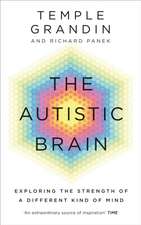The Nature of the Doctor-Patient Relationship: Health Care Principles through the phenomenology of relationships with patients: SpringerBriefs in Ethics
Autor Pierre Malliaen Limba Engleză Paperback – aug 2012
Din seria SpringerBriefs in Ethics
-
 Preț: 84.28 lei
Preț: 84.28 lei -
 Preț: 377.18 lei
Preț: 377.18 lei -
 Preț: 353.67 lei
Preț: 353.67 lei -
 Preț: 377.18 lei
Preț: 377.18 lei -
 Preț: 408.44 lei
Preț: 408.44 lei -
 Preț: 474.84 lei
Preț: 474.84 lei -
 Preț: 343.21 lei
Preț: 343.21 lei -
 Preț: 378.71 lei
Preț: 378.71 lei -
 Preț: 410.77 lei
Preț: 410.77 lei -
 Preț: 377.95 lei
Preț: 377.95 lei -
 Preț: 378.34 lei
Preț: 378.34 lei - 15%
 Preț: 461.87 lei
Preț: 461.87 lei -
 Preț: 414.72 lei
Preț: 414.72 lei -
 Preț: 478.53 lei
Preț: 478.53 lei - 15%
 Preț: 461.73 lei
Preț: 461.73 lei -
 Preț: 377.95 lei
Preț: 377.95 lei -
 Preț: 376.80 lei
Preț: 376.80 lei -
 Preț: 377.95 lei
Preț: 377.95 lei -
 Preț: 477.34 lei
Preț: 477.34 lei -
 Preț: 350.81 lei
Preț: 350.81 lei -
 Preț: 377.95 lei
Preț: 377.95 lei -
 Preț: 174.24 lei
Preț: 174.24 lei -
 Preț: 477.17 lei
Preț: 477.17 lei -
 Preț: 476.57 lei
Preț: 476.57 lei -
 Preț: 476.79 lei
Preț: 476.79 lei -
 Preț: 478.71 lei
Preț: 478.71 lei -
 Preț: 174.83 lei
Preț: 174.83 lei -
 Preț: 259.41 lei
Preț: 259.41 lei -
 Preț: 259.57 lei
Preț: 259.57 lei -
 Preț: 408.44 lei
Preț: 408.44 lei -
 Preț: 259.19 lei
Preț: 259.19 lei -
 Preț: 410.55 lei
Preț: 410.55 lei - 15%
 Preț: 463.03 lei
Preț: 463.03 lei -
 Preț: 411.16 lei
Preț: 411.16 lei - 15%
 Preț: 463.03 lei
Preț: 463.03 lei -
 Preț: 475.06 lei
Preț: 475.06 lei -
 Preț: 374.08 lei
Preț: 374.08 lei -
 Preț: 408.82 lei
Preț: 408.82 lei -
 Preț: 375.45 lei
Preț: 375.45 lei
Preț: 343.13 lei
Nou
Puncte Express: 515
Preț estimativ în valută:
65.66€ • 68.73$ • 54.65£
65.66€ • 68.73$ • 54.65£
Carte tipărită la comandă
Livrare economică 31 martie-14 aprilie
Preluare comenzi: 021 569.72.76
Specificații
ISBN-13: 9789400749382
ISBN-10: 9400749384
Pagini: 94
Ilustrații: VI, 86 p. 1 illus.
Dimensiuni: 155 x 235 x 12 mm
Greutate: 0.15 kg
Ediția:2013
Editura: SPRINGER NETHERLANDS
Colecția Springer
Seria SpringerBriefs in Ethics
Locul publicării:Dordrecht, Netherlands
ISBN-10: 9400749384
Pagini: 94
Ilustrații: VI, 86 p. 1 illus.
Dimensiuni: 155 x 235 x 12 mm
Greutate: 0.15 kg
Ediția:2013
Editura: SPRINGER NETHERLANDS
Colecția Springer
Seria SpringerBriefs in Ethics
Locul publicării:Dordrecht, Netherlands
Public țintă
ResearchCuprins
Introduction.- CHAPTER 1 Critical overview of principlist theories.- 1.1 The ‘Four-Principles’ Approach.- 1.1.1 Theoretical basis.- 1.1.2 The Paradigm case.- 1.1.3 The doctor-patient relationship.- 1.2 Robert Veatch’s model of Lexical Ordering.- 1.3 The Principle of Permission.- CHAPTER 2 Phenomenological roots of Principles.- 2.1 The nature of the physician-patient relationship.- 2.1.1 Communication.- 2.1.2 Goals of Medicine.- 2.1.3 The ‘care’ in Health Care.- 2.1.4 The special bond.- 2.2 The Principle of Beneficence and virtue.- 2.3 Nonmaleficence.- 2.3.1 Patient authority or trust.- 2.3.2 Epistemology.- 2.4 Respect for Autonomy.- 2.4.1 A historical and epistemological perspective.- 2.4.2 A cultural appraisal.- 2.5 The dual nature of Justice.- 2.5.1 The Justice of society.- 2.5.2 Justice in Health-Care.- CHAPTER 3 Principles as a consequence of the relationship.- 3.1 Need for grounding principles in.- the relationship.- 3.2 Defining the ontological entities.- 3.3 The physician as an entity.- 3.3.1 Levelling-down of medical relationships.- 3.3.2 Being as Understanding.- 3.4 The Patient as entity - potential for being truly-autonomous.- 3.4.1 Dimensions of the illness experience.- 3.4.2 True Autonomy and the Authenticity of the relationship.- 3.5 Hermeneutics of the relationship.- 3.6 Phenomenology of the clinical encounter.- CHAPTER 4 The principle of Justice in a secular society.- 4.1 Being-with-one-another and the Golden Rule.- 4.1.1 Being-with-one-another.- 4.1.2 The Golden Rule.- 4.2 Common Values.- 4.2.1 Implications in Bioethics.- 4.2.2 The naturalistic fallacy.- 4.3 Common morality and Being-with-one-another.- 4.3.1 Confronting rival traditions.- 4.3.2 Being-with-one-another.- CHAPTER 5 The question of social construct theories Reappraising and phenomenology of the doctor-patient relationship.- 5.1 Post-modernism and medicine.- 5.2 Socially constructed theories.- 5.3 A philosophy basedon the phenomenology of the relationship.- 5.4 The ontology of the patient, the doctor and the relationship.- 5.5 Truth concealed.- 5.6 The Clinical Encounter.- CHAPTER 6.- Conclusion.- BIBLIOGRAPHY.
Recenzii
From the reviews:
“In this volume in the Springer Briefs in Ethics series, the author surveys a wide range of current literature for the principles that conform to the phenomenon of the doctor-patient relationship. The purpose is to examine the nature of the doctor-patient relationship. … As a critical review of the current approaches in bioethics, the book is useful for students and scholars interested in theoretical aspects of bioethics in general and the doctor-patient relationship in particular.” (Shahram Ahmadi Nasab Em, Doody’s Review Service, February, 2013)
“In this volume in the Springer Briefs in Ethics series, the author surveys a wide range of current literature for the principles that conform to the phenomenon of the doctor-patient relationship. The purpose is to examine the nature of the doctor-patient relationship. … As a critical review of the current approaches in bioethics, the book is useful for students and scholars interested in theoretical aspects of bioethics in general and the doctor-patient relationship in particular.” (Shahram Ahmadi Nasab Em, Doody’s Review Service, February, 2013)
Caracteristici
Includes supplementary material: sn.pub/extras
